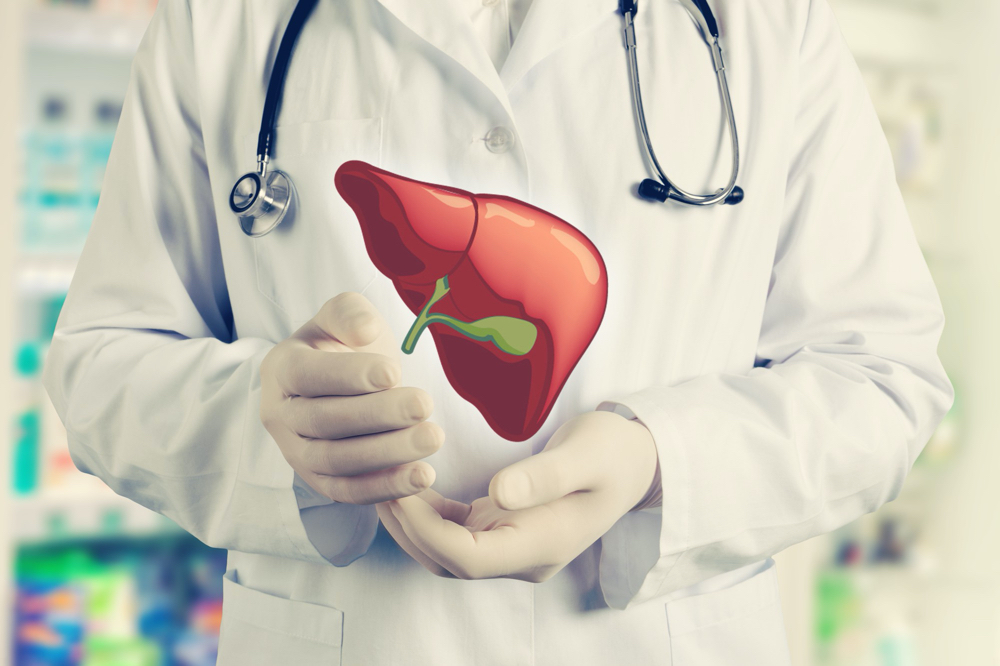- Fast results
- 4,000+ locations
- 4.8 star rating
Need Help? (888) GET LABS

The information in this article is not intended to replace professional medical advice, diagnosis, or treatment. Instead, consult your physician or any licensed healthcare providers if you have questions.
If you find out that your liver enzymes, like aspartate aminotransferase (AST) and alanine transaminase, turned out to be elevated during a blood test, it can mean various things based on several factors. However, it’s often linked to disrupted liver function. Therefore, it’s imperative to ensure you bring their levels back to normal by following your doctor’s order, reducing alcohol intake, avoiding toxins, managing your weight, and keeping a close eye on your diet.
Below we’ll tackle all these steps to lower high AST and ALT levels. You’ll also get to learn about the popular home remedies for managing these elevated liver enzymes.
| Did you know? Aspartate aminotransferase (AST) is also known serum glutamic-oxaloacetic transaminase (SGOT). This is why you’ll find a lab test called AST SGOT blood test. |

AST (aspartate aminotransferase) and ALT (alanine aminotransferase) play a crucial role in metabolizing amino acids, which are the building blocks of proteins. Damaged or inflamed liver cells trigger the release of AST and ALT into the bloodstream, raising their levels.
There are several possible specific causes of elevated AST and ALT levels, including liver diseases such as hepatitis, fatty liver disease, and cirrhosis. Excessive alcohol consumption, certain medications, obesity, high cholesterol, and viral infections can also cause elevated levels.
It’s crucial to identify the root cause of your high AST and ALT levels in order to effectively lower them. In this case, further medical tests may be necessary, as well as consultations with a healthcare professional. Once the cause is determined, you can take targeted steps to address the underlying issue.
| Pro tip: High AST SGOT and ALT provide insights into your liver health. Another panel blood test that also evaluates how well your liver works is the hepatic function panel 7 blood test. |
Normal ALT levels range from 0 to 44 IU/L, while AST levels must be between 0 to 44 IU/L, based on Labcorp’s reference interval. Other labs may have slightly different thresholds, so always check their specific reference. Beyond the upper limit, this indicates that the enzymes have been released in the bloodstream at an elevated amount. Thus, it requires immediate medical consultation.
Aside from medications and other treatments your doctor prescribes, it’s important to adopt the following tips that help your liver function better. In turn, this helps lower your AST SGOT and ALT levels.
It’s no secret that frequent alcohol consumption can lead to liver damage which increases ALT and AST. This has been proven by several research data, including the study published in the Journal of Studies on Alcohol and Drugs. The study delves deeper into the relationship of alcohol drinking with the AST-ALT ratio, as well as its impact on other proteins and the mean corpuscular volume (MCV) of the red blood cell.
Reducing your alcohol intake allows the liver to recover and the hepatic cells to undergo repair. However, how long and well you recover depends on the extent of alcohol dependency.
With this in mind, you should first assess other factors that could impede alcohol elimination from your lifestyle. Or better yet, work closely with a professional, especially if you plan to completely give up alcohol, along with other habits that destroy your liver.
Weight management plays a crucial role in maintaining good health, including keeping your liver in a pristine state. Keeping your caloric intake within healthy limits and getting more physically active aid individuals with nonalcoholic fatty liver disease (NAFLD) in reducing their AST and ALT levels.
However, when choosing a weight loss intervention method, make sure to go for something sustainable. Intensive options appear to diminish the goal of improving treatment among patients with NAFLD, according to a study published in the European Journal of Clinical Nutrition.
| Pro tip: Your weight loss journey should include a medical assessment at the get-go to keep better track of your progress. A weight loss profile blood test, for example, allows your primary care provider to determine which type of diet and the rate of physical activity matches your needs and natural composition. Check out our other guides on weight loss: 5 Common Weight Loss Obstacles and How to Deal With Them the Right Way5 Things You Need to Do First Before Choosing a Weight Loss Plan |
Keep the liver free from toxic chemicals, pollutants, and pollutants. If possible, avoid smoking, use protective gear when handling harmful substances, and choose organic produce. Toxins such as nicotine and those found in industrial solvents can cause damage to the liver, prompting the elevation of liver enzymes in the blood.
Cigarette smoking, for instance, adversely impacts NAFLD, as presented in a review published in the Journal of Hepatology. The mechanism of such impact involves various minute effects of nicotine, including the activation of oxidative stress.
Chronic stress has been shown to have negative effects on liver health, potentially leading to increased AST and ALT levels. Studies have indicated that chronic stress can cause liver injury and impair liver function.
For instance, work-related stress as a result of working long hours can alter liver enzyme levels abnormally. This has been shown in a study published in the Annals of Occupational and Environmental Medicine.
Incorporate stress management techniques such as meditation, yoga, or engaging in hobbies to reduce stress levels and support liver function. Likewise, make sure to avoid overworking and maintain a healthy work-life balance.
| Pro tip: When you’re working, it can be tricky to find ways to destress without frequently thinking about your tasks. Check out our guide on how to deal with stress when you’re busy. Additionally, make sure you’re destressing right by avoiding unhealthy ways of coping with stress. |
AST and ALT levels can be lowered by consuming certain foods that promote liver health. These include garlic, turmeric, leafy greens, cruciferous vegetables, and berries, which contain specific compounds or antioxidants that support liver function.
Fatty fish rich in omega-3 fatty acids is also ideal for supplementation as it provides extra protection to the liver, especially among those with chronic liver disease. Tuna and salmon are two of the most common commercial fish you can include in your diet. These are also versatile in that you can prepare them in many ways.
Make sure to consume other fruits, vegetables, and whole grains, especially those rich in soluble fiber. Dietary fiber has been associated with liver protection and lowers the risk for NAFLD. Naturally, this allows AST and ALT to remain within the normal range.
In addition to adding healthy foods to your diet, if possible, avoid processed foods, too much red meat, and sugary drinks, as they can cause your liver to overwork itself. Plan your meals accordingly and work with a nutritionist or your doctor to ensure your diet works largely in your favor.
Water is important for the liver to perform its role in detoxification. Therefore, if you don’t drink enough water in a day, it could negatively impact your liver’s ability to flush out wastes and toxins. On the flip side, keeping track of your water intake secures support for liver function and keeps the liver enzymes at optimal levels.

Aside from the lifestyle changes mentioned above, you may also want to consider the following natural remedies that support liver function, which can reduce ALT and AST. Keep in mind, however, that you should consult your doctor first to ensure that you maximize the benefits of these organic supplements and avoid potential harm.
The herb milk thistle is known for its liver-protective properties, specifically reducing liver inflammation and supporting detoxification. However, make sure to consult with your doctor first for the appropriate dosage and form of milk thistle before adding milk thistle to your grocery list.
The root of the dandelion is traditionally used for liver health support, as it is known to stimulate bile production and help in detoxification. You can typically find dandelion root in the form of a tea or a supplement.
Green tea is dubbed as the healthiest drink in the world. It is rich in antioxidants that can help protect the liver from inflammation and damage. Consider drinking two to three cups of green tea daily to support liver health.
Compounds in artichoke enhance liver function and promote bile flow. You can consume artichokes steamed, roasted, or as supplements.

If your AST and ALT are twice as high as the upper limit of the normal reference range, you should secure further consultation with a healthcare professional. In addition, it would also be concerning if you exhibit consistently elevated liver enzymes, regardless if it is mild, despite the lack of symptoms.
Naturally, the treatment for elevated AST and ALT levels all depends on the cause of the imbalance. With this, further liver function testing may be required by your doctor. Nonetheless, you can follow through with the lifestyle improvement actions mentioned above to supplement the medication prescribed by your doctor, regardless of the primary underlying condition.
Yes, you can recover from high ALT and AST, but the rate of recovery and duration will depend on the cause. There are cases wherein the elevated levels of these liver enzymes are temporary, hence, with proper medication and lifestyle adjustment, you can expect to go back to normalcy between two to four weeks.
However, if the condition’s underlying cause is a serious liver injury or something related, you may have to follow a particular course of treatment that will influence your recovery from elevated AST and AL.
Lowering high ALT and AST requires a combination of conscious lifestyle changes and professional direction from your healthcare provider. Before employing the steps and tips we outlined above, consult your doctor first so you can keep a good balance of natural and professional treatment. In addition, maintain activities and daily choices that improve your liver health.


We now offer pharmacy discounts through our PersonalabsRx platform.
We now offer pharmacy discounts through our PersonalabsRx platform.